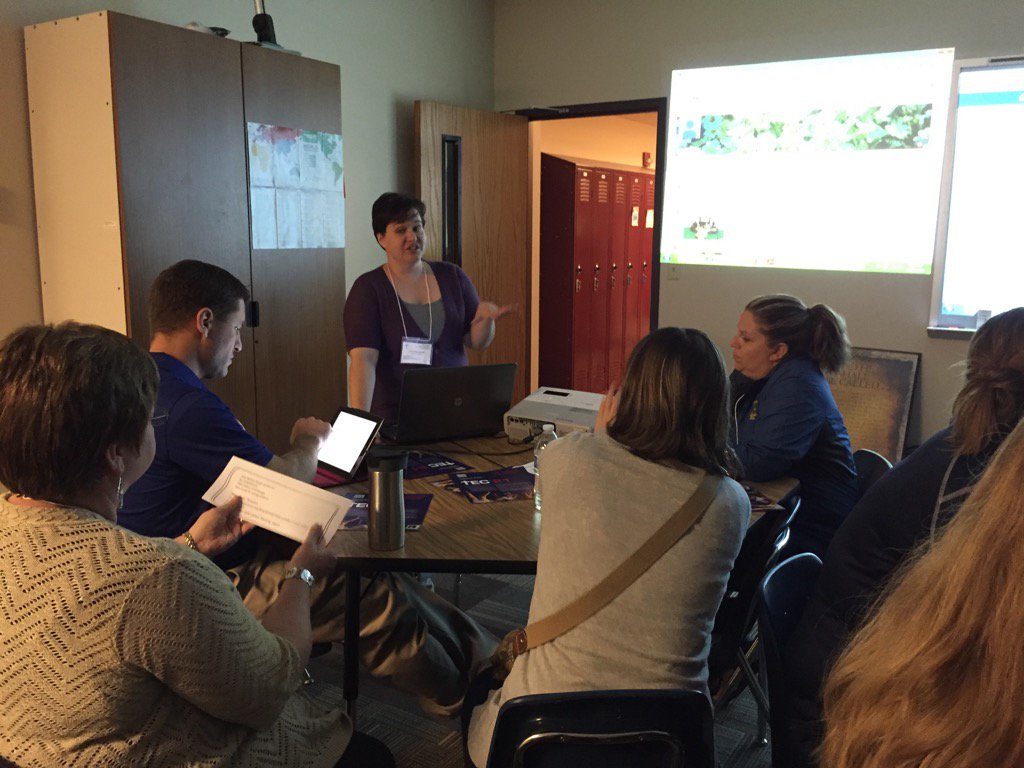 Many teachers amazed me this week with the effort they devoted to take new learning with technology, implement immediately with their students, and be ready to share with other teachers within a week or two! At the Nebraska District Educator's Conference five TEC21 teachers presented topics including: setting up online portfolios for each member of your class using Seesaw, coding using code.org, flipping the classroom using Explain Everything to create videos and post at Schoology.org, setting up a class at Storyjumper.com and having students write digital stories, and creating stop motion movies and iMovies. Some of these teachers just learned about these tools a week ago at our TEC21 workshop. They went back to their classrooms and immediately engaged their students in these new digital learning activities. Then they prepared a presentation to teach other teachers how to do this with their students! Amazing! Genius!
Many teachers amazed me this week with the effort they devoted to take new learning with technology, implement immediately with their students, and be ready to share with other teachers within a week or two! At the Nebraska District Educator's Conference five TEC21 teachers presented topics including: setting up online portfolios for each member of your class using Seesaw, coding using code.org, flipping the classroom using Explain Everything to create videos and post at Schoology.org, setting up a class at Storyjumper.com and having students write digital stories, and creating stop motion movies and iMovies. Some of these teachers just learned about these tools a week ago at our TEC21 workshop. They went back to their classrooms and immediately engaged their students in these new digital learning activities. Then they prepared a presentation to teach other teachers how to do this with their students! Amazing! Genius!Last night we had our best graduate class yet as teachers came together to share the unique ways they are integrating technology in their classrooms: Remind app to communicate with parents, Educreations to create a screencast, Photo Booth to record students' reading fluency, Storybird for special needs students to write digital stories, Seesaw to empower students to upload work into an online portfolio, Chatterpix to put mouths on pictures to allow them to talk, Nearpod to insert interactivities into presentations, and more! Amazing! Genius!
I am constantly reminded of Malcolm Gladwell's book "Outliers" where he explains that high-achievers invest 10,000 hours to become experts. For teachers to become experts at technology integration they too need to invest much time with technology: exploring, playing, collaborating, teaching, learning. When teachers invest the time to learn a new technology, they benefit, their students benefit, and the teachers with whom their share their expertise benefit! Remember the teaching uses with technology that you may think are obvious, may be amazing to another teacher. As Donald Leu finds in his research, "no one person can be expected to know everything there is to know about the technologies of literacy...Each of us, however, will know something useful to others."
So share what you know! Most technologies have not been around long enough for people to be experts. We all have something to contribute to this new area of teaching. What genius things are you doing and how are you sharing them with colleagues?
Take two minutes to watch this brief video "Obvious to You, Amazing to Others" as you consider what you do that will be genius to others!
Here's to becoming a technology integration expert to benefit your students!




